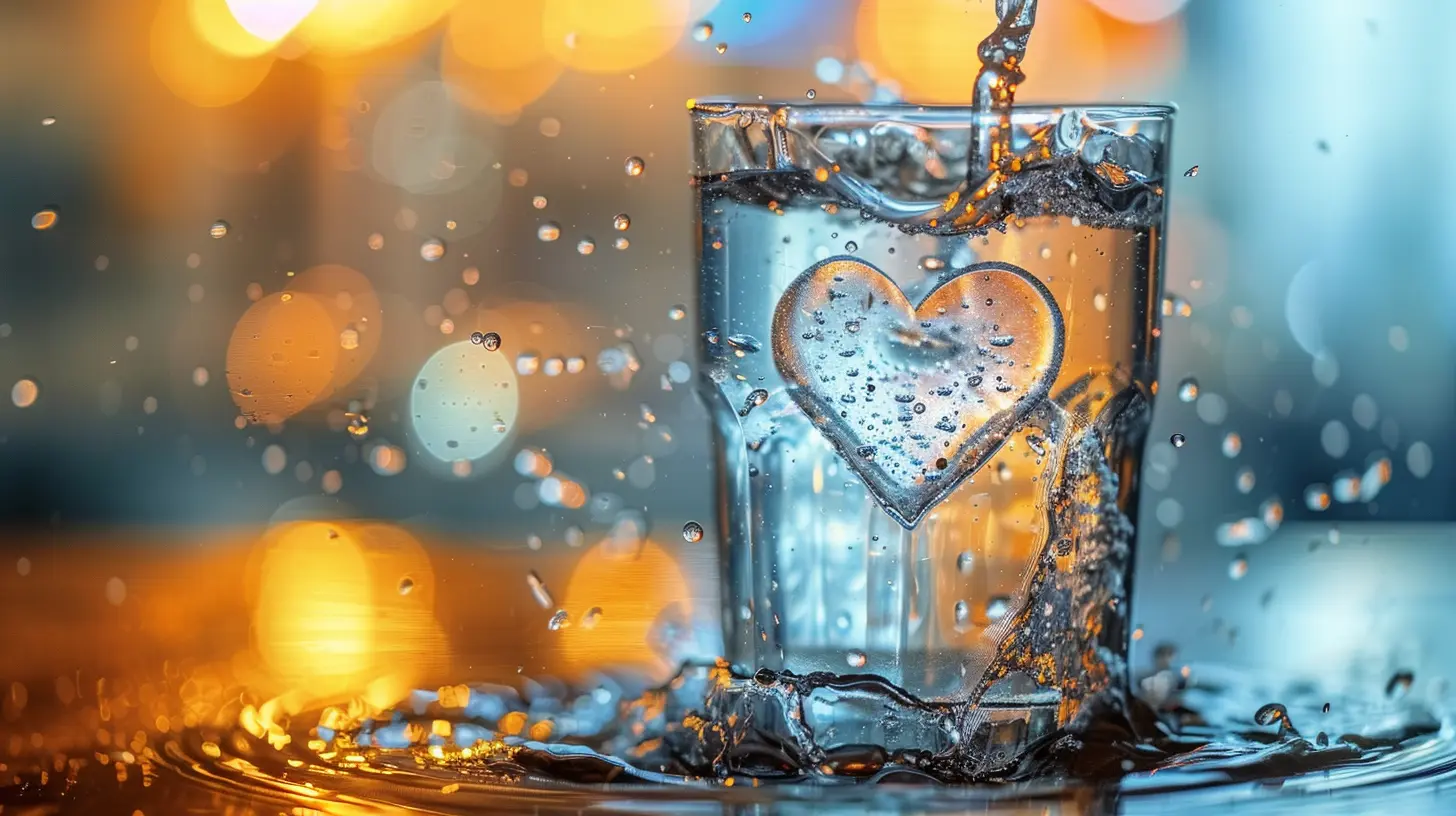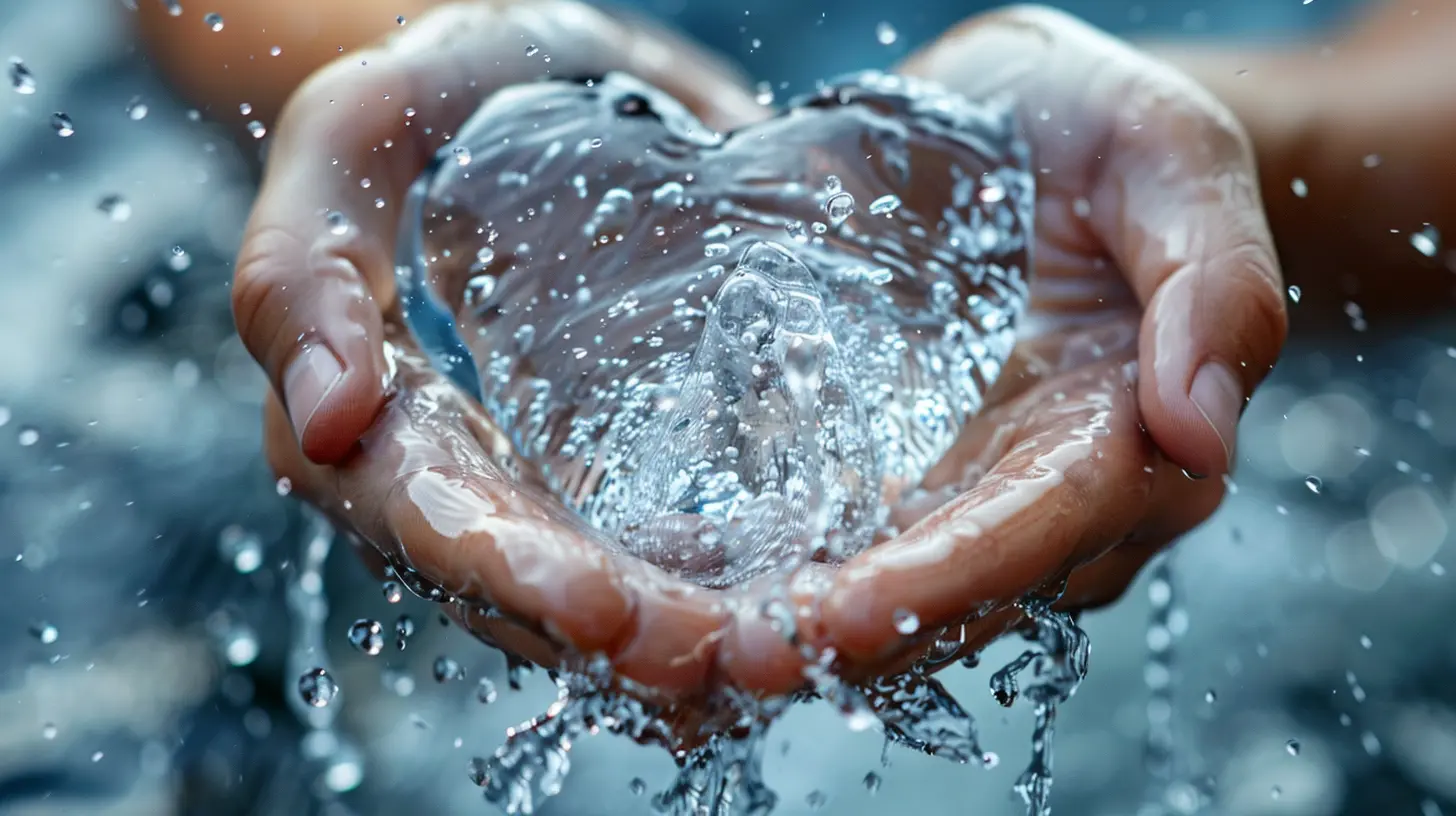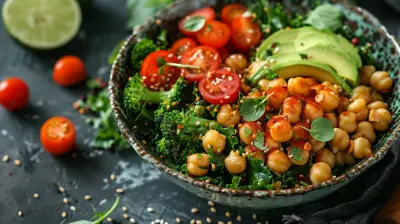The Importance of Hydration for Heart Health
28 June 2025
You’ve probably heard it a thousand times: “Drink more water.” But have you ever stopped to think about _why_ that advice is so critical—especially when it comes to your heart? Yeah, it’s easy to brush off hydration as just another health tip, right up there with “eat more veggies” or “get your steps in.” But trust me, this one’s a game-changer, especially if you care about that all-important ticker in your chest.
In this post, we’re diving deep into why staying hydrated isn’t just good—it’s essential for a healthy heart. Whether you’re already a water bottle-carrying wellness warrior or someone who forgets to drink until you’re parched, this guide is for you.
Water: The Unsung Hero of Heart Health
Let’s get real—your heart works non-stop. It pumps around 2,000 gallons of blood every single day. To pull that off, it needs support, and water is that silent partner that keeps things humming along smoothly.So, What Exactly Does Water Do for the Heart?
When you're properly hydrated, your blood maintains the right consistency. That makes it easier for your heart to pump it through your arteries and veins. Less strain means a lower risk of heart-related issues like hypertension, blood clots, and even heart attacks.Imagine trying to squeeze ketchup through a straw. Sounds ridiculous, right? That’s basically what your heart deals with when you’re dehydrated—your blood becomes thicker, your blood pressure can spike, and your heart has to work harder.
Dehydration: The Hidden Threat
Here's the kicker: most people walk around mildly dehydrated without realizing it. Feeling a bit tired? Maybe you chalk it up to a bad night’s sleep. Heart racing after a short walk? You might think you’re just out of shape. But often, these are early warning signs that your body—particularly your heart—is screaming for water.Dehydration and Blood Pressure
One of the sneakiest ways dehydration messes with your heart is by messing with your blood pressure. When you’re low on fluids, your body tries to compensate by constricting blood vessels and retaining sodium. That’s a double-whammy for your heart.High blood pressure is the silent killer. It doesn’t make much noise, but over time, it wears down your heart, damages your arteries, and raises your risk of heart disease. Proper hydration helps maintain healthy blood pressure levels, giving your heart a break.
How Much Water Does Your Heart Need?
Here’s the million-dollar question: how much should you drink?The old “eight glasses a day” rule? It’s a good start, but not a one-size-fits-all. Your hydration needs depend on your size, activity level, climate, and diet.
As a rough guide:
- Men: Around 3.7 liters (125 ounces) per day
- Women: Around 2.7 liters (91 ounces) per day
But remember, that includes water from all sources—food, beverages, even that juicy slice of watermelon.
Pro tip:
If your pee is light yellow, you’re probably doing fine. If it’s dark amber, it’s time to fill up that water bottle.
Signs You Might Be Dehydrated (Without Even Knowing)
You don’t always have to feel thirsty to be dehydrated. Weird, right?Here are some sneaky signs your body might be running dry:
- Quickened heartbeat
- Dizziness or lightheadedness
- Fatigue or low energy
- Confusion or brain fog
- Dry skin and chapped lips
- Constipation
If you tick off a couple of those boxes, your body could be waving a hydration red flag.
Electrolytes Matter, Too
Ever chugged a bunch of water and still felt drained? That’s where electrolytes come in. These magical minerals—like sodium, potassium, and magnesium—help regulate fluid balance and support heart function.Think of electrolytes as the traffic cops of your cellular highway. They direct where fluids go, how muscles contract, and how nerves fire. If they’re out of whack, it can throw your heart rhythm off in a serious way.
Best sources of electrolytes:
- Coconut water- Bananas
- Leafy greens
- Avocados
- Or, yes, electrolyte-infused drinks (just watch for added sugars)
The Connection Between Hydration and Cholesterol
Here’s something most people don’t know: when you’re dehydrated, your body actually produces more cholesterol. That’s right—dehydration can affect your lipid profile. Without enough water, your body tries to prevent more fluid loss by increasing cholesterol to “seal” cell membranes.That’s great if you’re stranded in a desert somewhere. But in everyday life? High cholesterol increases your risk of plaque build-up in your arteries, which can lead to heart attacks and strokes.
Staying hydrated can help your body maintain a healthy balance and keep those numbers in check.
Hydration and Exercise: A Heart-Smart Duo
If you’re hitting the gym or going for a run (go you!), hydration becomes even more critical. When you sweat, you lose both water and electrolytes. If you don’t replace them, your blood volume drops, making your heart pump faster to meet oxygen demands.Pre-, during-, and post-workout hydration tips:
- Before: Drink 16-20 oz about 2 hours before exercise- During: Sip 7-10 oz every 10-20 minutes if you’re sweating a lot
- After: Rehydrate with water and a small snack with sodium to help absorption
Staying ahead of dehydration means your heart won’t be forced to work overtime.
Heart Conditions and Hydration: A Cautionary Note
If you already have a heart condition—like congestive heart failure or atrial fibrillation—hydration still matters, but with a twist. Some people with heart issues are told to limit fluids due to fluid retention.This is where working closely with your doctor comes in. You need a personalized plan to ensure you’re getting enough water without overwhelming your system. Never start guzzling gallons just because you read it’s heart-healthy.
Best Drinks for Heart Health
Water is #1 for a reason, but let’s be honest, sometimes we crave a little variety. If H2O is getting a bit boring, mix it up with these heart-smart drinks:- Herbal tea: Calming and hydrating
- Infused water: Add cucumber, lemon, or berries
- Coconut water: Great for potassium
- Low-fat milk: Packed with calcium and magnesium
- Beet juice: May help lower blood pressure
Just steer clear of sugary sodas, energy drinks, and anything with a laundry list of weird ingredients.
How to Make Hydration a Daily Habit
Let’s face it: being told to drink more water is easy. Remembering to actually _do it_? That’s the hard part.Here are some easy tips to keep your hydration game strong:
- Keep a reusable water bottle with you—everywhere.
- Set phone reminders or hydration app alerts.
- Pair water intake with daily habits (like after every bathroom break).
- Add a splash of flavor—mint, fruit, or a dash of juice.
- Eat hydrating foods—cucumbers, melons, soups, and smoothies.
Consistency is key. Over time, staying hydrated becomes second nature.
Final Thoughts: Your Heart is Counting on You
The truth is simple—when you take care of your hydration, you're taking care of your heart. It's not flashy, it's not trendy, but boy, is it powerful. Water supports everything from blood pressure to cholesterol, heart rate to circulation. Every drop matters.So the next time you reach for that soda or skip the water bottle during your workout, think about your heart. That quiet, hardworking muscle deserves the best, and hydration is one of the easiest ways to give it just that.
Drink up—for your heart’s sake.
all images in this post were generated using AI tools
Category:
Healthy HeartAuthor:

Tiffany Foster
Discussion
rate this article
2 comments
Georgina Thomas
Hydration is crucial for maintaining heart health. Proper fluid intake helps regulate blood pressure, improve circulation, and support overall cardiovascular function. Prioritize water consumption to promote a healthy heart and enhance well-being.
November 4, 2025 at 5:25 PM

Tiffany Foster
Thank you for highlighting the vital role of hydration in heart health! Staying properly hydrated is indeed essential for supporting cardiovascular function and overall well-being.
Faenor McGuffey
Great article! Staying hydrated is such an easy way to support our hearts. I’m definitely going to keep a water bottle handy from now on!
July 2, 2025 at 3:48 AM

Tiffany Foster
Thank you! I'm glad you found it helpful. Staying hydrated is indeed key for heart health!


